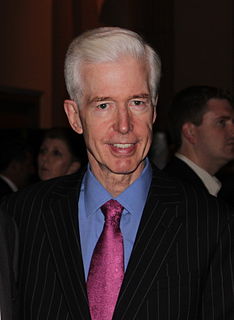A Quote by John F. Kennedy
The lower the family income, the higher the probability that the mother must work. Today, 1 out of 5 of these working mothers has children under 3. Two out of 5 have children of school age. Among the remainder, about 50 percent have husbands who earn less than $5,000 a year-many of them much less. I believe they bear the heaviest burden of any group in our Nation. Where the mother is the sole support of the family, she often must face the hard choice of either accepting public assistance or taking a position at a pay rate which averages less than two-thirds of the pay rate for men.
Quote Topics
About
Accepting
Age
Among
Any
Assistance
Bear
Believe
Burden
Children
Choice
Earn
Either
Face
Family
Group
Hard
Heaviest
Higher
Husbands
I Believe
Income
Less
Lower
Many
Men
Mother
Mothers
Much
Must
Nation
Often
Our
Out
Pay
Percent
Position
Probability
Public
Rate
School
She
Sole
Support
Taking
Than
Them
Thirds
Today
Two
Two-Thirds
Which
Work
Working
Year
Related Quotes
When you say the tax system benefits the rich, there are a lot of people who respond, "That can't be true, look at the rate of tax. The people who are rich pay a higher rate than you or I." Well, yeah, but if you don't have to pay taxes on a lot of your income, then your real tax rate is a lot lower. And if you're allowed to pay your taxes thirty years from now instead of today then you're a lot better off. People need to have a sophisticated understanding of how the system works to appreciate that the posted tax rate really has very little to do with the taxes people pay.
We economists, in our classes, teach students that to some degree, price discrimination is actually a good thing; that it allows you to serve lower-income people. Take Africa, with AIDS. They could never finance what an AIDS cocktail costs here, over $10,000 a year. But if you sold it to them for $300 a year, which just barely covers cost, they could probably serve quite a few of their citizens, with World Bank help. We economists say that will be beneficial. But it's a two-tier system; yes, African people pay less than we would pay.
School choice opponents are also dishonest when they speak of saving public schools. A Heritage Foundation survey found that 47 percent of House members and 51 percent of senators with school-age children enrolled them in private schools in 2001. Public school teachers enroll their children in private schools to a much greater extent than the general public, in some cities close to 50 percent.
...We may encounter many defeats, but we must not be defeated. That sounds goody two-shoes, I know, but I believe that a diamond is the result of extreme pressure and time. Less time is crystal. Less than that is coal. Less than that is fossilized leaves. Less than that it's just plain dirt. In all my work, in the movies I write, the lyrics the poetry, the prose, the essays, I am saying that we may encounter many defeats - maybe it's imperative that we encounter the defeats - but we are much stronger than we appear to be and maybe much better than we allow ourselves to be.
Mothers who know do less. They permit less of what will not bear good fruit eternally. They allow less media in their homes, less distraction, less activity that draws their children away from their home. Mothers who know are willing to live on less and consume less of the world’s goods in order to spend more time with their children—more time eating together, more time working together, more time reading together, more time talking, laughing, singing, and exemplifying. These mothers choose carefully and do not try to choose it all.
The deeper purpose of a more positive attitude toward men is a better life for the children who are parented by the men who are their dads and stepdads; less shame for our sons who will become men; and, for our daughters, a deeper understanding of men's desire to please that leaves them feeling their willingness to please is not unrequited but returned - allowing our daughters to feel less lonely and more loved. If we earn more and love less, we pay for a home in which we do not live.
We are compelled to work more hours per day, receive less pay per hour, pay more for what we buy, and recieve less for what we sell. The consequence is that we must work harder and more hours per day than we should, and in the end have less than what is due to us as our part of the advantages, conveniences and opportunities resulting from advancing civilization.
First, the oil and gas business pays its fair share of taxes. Despite the current debate on energy taxes, few businesses pay more in taxes than oil and gas companies. The worldwide effective tax rate for our industry in 2010 was 40 percent. That's higher than the U.S. statutory rate of 35 percent and the rate for manufacturers of 26.5 percent.


































